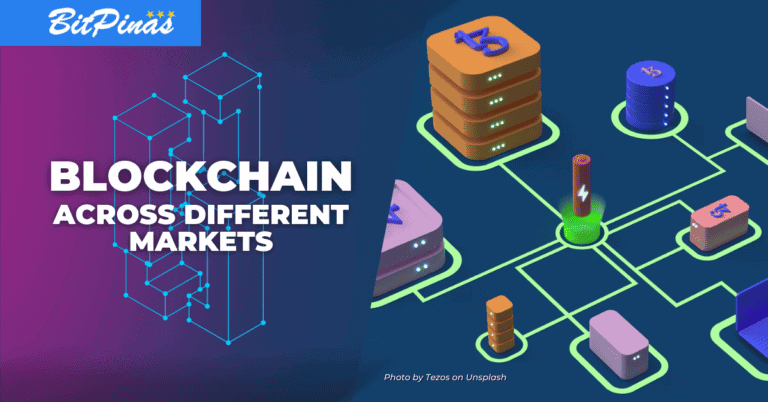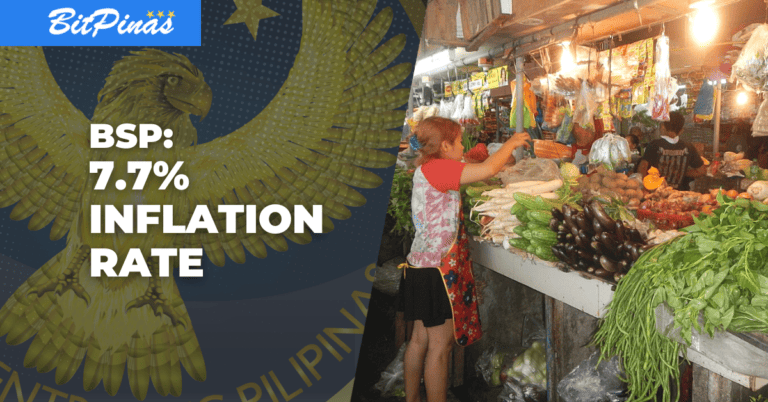Binance Proposes Industry Guidelines to Rebuild Trust in Crypto
Binance’s “Building Trust in The Crypto Ecosystem” is aimed at improving trust and security/safety across the industry.

- Binance releases framework of guidelines for centralized exchanges (CEXs) titled “Building Trust in The Crypto Ecosystem” aimed at improving trust and security/safety across the industry.
- The guidelines highlight three main points in improving the trust between the CEXs, users, and regulators: safer handling of customer funds, proper transparency and disclosure, and best practices in risk management.
- Binance’s global presence expands as it acquires a majority stake in South Korean crypto exchange GOPAX and affiliates in multiple countries, but it is still not legally registered in the Philippines.
Global cryptocurrency exchange Binance have recently published a framework of guidelines for all centralized exchanges (CEXs) titled “Building Trust in The Crypto Ecosystem” which advocates for user and regulator trust. Ultimately, the guidelines aim to raise the “standard on trust and security/safety across the industry furthering blockchain technology and services for people who need and benefit from it.”
Accordingly, the framework stresses safe and secure handling of user assets, transparency, and risk management among exchanges. In a statement, the exchange expressed that their goal is raise the bar on trust and safety for the industry in general.
The guidelines highlight three main points in improving the trust between the CEXs, users and regulators.
Improving trust through reliable custody of user funds
For its first element, Binance emphasized the safer and more secure handling of customer funds and assets on centralized platforms by encouraging the CEXs to be unwilling to take risks when it comes to customer funds and assets. They also pointed out that exchanges must also have proper authorization of use of customer funds which also involves full customer consent.
Moreover, Binance also stressed the importance of wallet infrastructure and security. According to them, “centralized exchanges must allow users the freedom to choose where to store their digital assets, depending on their unique needs”.
“This means that no user should be limited on where they can store their assets and should be able to use all solutions offered by the exchange. Centralized exchanges must also adopt the highest security standard solutions for the storage of customer assets to protect them from cyber threats,” they explained.
Improving trust through proper transparency and disclosure
“Transparency is a core concept of cryptocurrency and one that centralized exchanges must continuously and properly adopt. It is a very complex process which is new and unique to the industry, and is rather different from traditional financial institutions. Luckily, technology has made innovative solutions possible,” Binance noted.
Binance stated that users of centralized exchanges should have the right to verify the safekeeping of their assets held in a CEXs’ custody through proof of reserves (PoR) or similar disclosures. In addition, they pointed out that these methods must be “technically adequate and updated on a regular basis using the latest reliable technology that cannot be falsified.”
“With this, Binance has also just recently updated their own PoR system with zk-SNARK, a powerful verification tool that ensures both data integrity and privacy at the same time. Its application for proving reserves and increasing CEX transparency should help build trust in the blockchain industry,” they shared.
Improving trust with best practices in risk management
Citing the common perception of crypto being risky due to its high volatility, Binance stated that CEX must take measures on risk management tactics to help protect not only the exchanges but also the users themselves to help overcome this view and to promote more trust in the industry.
Binance’s guidelines propose that exchanges must have a conservative capital structure. It also advises CEXs against relying on capital through debt to fund growth given the recent macroeconomic and geopolitical developments.
In addition, Binance also pointed out that exchanges have a critical responsibility to promote firmer governance processes on admitting crypto assets on their platforms. This move will further protect their users against low credibility projects and scams such as “rug pulls”.
“Exchanges are also encouraged to establish safety net programs to further protect user funds such as Binance’s Secure Asset Fund for Users (SAFU). In addition to these, dedicating resources to promote crypto education and providing users with knowledge not only on the products and tokens, but also on the risks associated with them, is also encouraged,” Binance added.
Global Binance Presence
Recently, Binance acquired a majority stake in South Korean crypto exchange GOPAX. Its investment will allow GOPAX to secure any potential GoFi users’ withdrawal requests against all staked deposits, including interest. The two exchanges will also work together to improve Korean users’ education and blockchain awareness through Binance Academy. (Read more: Binance Acquires Majority Stake in Korean Crypto Exchange GOPAX)
Since the global crypto boom, Binance has been actively making its presence known in different countries around the world. At the time of writing, it has affiliations in Indonesia, Japan, Spain, New Zealand, France, Bahrain, Abu Dhabi, Dubai, Kazakhstan, Poland, Lithuania and Cyprus.
Locally, since it was affected by the three-year moratorium of the Bangko Sentral ng Pilipinas (BSP), the exchange is still not legally registered in the Philippines. In a report, Binance revealed that it is trying to acquire a local company with the necessary licenses—as of writing there is still no update regarding the acquisition.
Just this month, Binance CEO Changpeng Zhao was in the country again to attend ACTAI Global’s Web3 Meetup in El Nido, Palawan which brought together local and international web3 leaders. Filipino web3 tech leaders BreederDAO CEO Renz Chong and Yield Guild Games Co-founders Beryl Li and Gabby Dizon were also present in the event. (Read more: Binance’s CZ, International Web3 Leaders in the Palawan, Philippines for ACTAI Global Event)
This article is published on BitPinas: Binance Proposes Industry Guidelines to Rebuild Trust in Crypto
Disclaimer: BitPinas articles and its external content are not financial advice. The team serves to deliver independent, unbiased news to provide information for Philippine-crypto and beyond.




